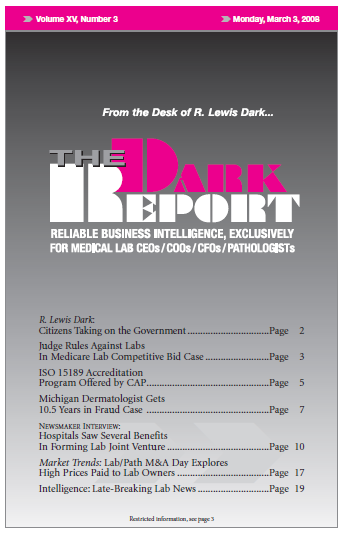CEO SUMMARY: Two strong trends in laboratory management can be seen in the College of American Pathologists’ (CAP) move to offer accreditation to ISO 15189:2007. The first trend is the movement toward quality management systems such as Lean and Six Sigma. The second trend is the global convergence of laboratory operations. Also, a growing number …
ISO 15189 Accreditation Program Offered by CAP Read More »
To access this post, you must purchase The Dark Report.


